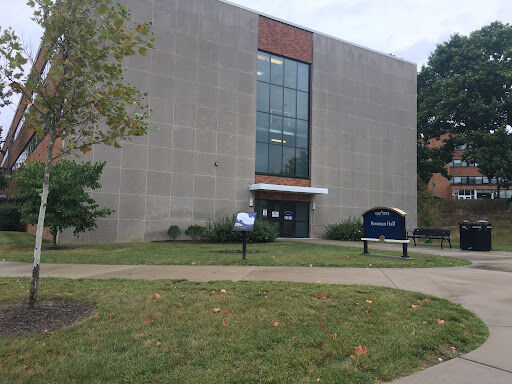Multidisciplinary programs find refuge in a new school this fall
The School of Multidisciplinary Social Sciences and Humanities opened fall 2021. The school will create a new space to support a rich learning environment combining international relations, paralegal studies, Latin American studies, LGBTQ+ studies and other academic programs centered around multidisciplinary.
“The school gives an academic home to these programs in a way that facilitates multidisciplinary focus and to support students crossing boundaries and investigating topics they like,” said Julie Mazzei, the director of the School of Multidisciplinary Social Sciences and Humanities.
While offering 10 multidisciplinary minors, three majors, one post-baccalaureate certificate and one graduate program, the Center for the Study of Gender and Sexuality is also included.
The center includes a women’s studies minor, which allows students to “grow in their own ability to see and examine the entanglements of women’s existences in the grander human experience,” as shown on Kent State’s School of Multidisciplinary Social Sciences and Humanities website.
All programs offered have a central focus on complex questions.
“Complex questions are what the school embraces,” Mazzei said. “It is the knowledge that no real human behavior sits inside one field.”
Part of the school’s mission of complex questions helps students to “examine the intersection of social identity structures and formal institutions,” as shown on Kent State’s website.
The website states that these questions will challenge students to study the evolution of human social issues. Students will use these concepts and apply it to social issues they find most important.
Mazzei said the school was first proposed by the interim dean of the College of Arts and Sciences, Mandy Munro-Stasiuk, in fall 2020 and had to go through a series of approvals. It was approved by the board of trustees in July 2021.
It has nine full-time faculty members and faculty members who are affiliates.
Mazzei said some of these members work in departments like sociology and theatre and dance, which adds creativity within multidisciplinary studies.
“Fabio Polanco is in theatre and dance, and he has been working with me on the Latin American studies program,” Mazzei said. “He’s like, ‘we need to do Chicano studies, theater and dance, and theatre of the oppressed,’ and I’m like ‘OK, let’s totally 100% do it.’”
Alexus Rayzer is a reporter. Contact her at [email protected].



